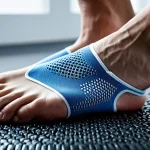In the early days of a baby’s life, the skin-to-skin contact (SSC) between parents and their infant is paramount. This simple, yet profound, act has been recognized by scholars, healthcare professionals and parents alike for its multiple benefits. However, traditionally, the focus has been on the mother-infant connection; breastfeeding and SSC have been considered the mothers’ domain. Over time, this narrative has been shifting. There’s an increasing awareness and emphasis on the role of fathers in the post-birth care of their newborns, particularly in the UK.
The Importance of Skin-to-Skin Contact for Infants and Parents
Before delving into the role of fathers in SSC, let’s first understand why this contact is so crucial for both the baby and the parents. When a newborn is placed on the mother’s or father’s naked chest, the warmth, smell, and sound of the parent’s heartbeat provide a sense of security. This contact also aids in the baby’s physiological transition from the womb to the outside world.
Additional reading : How Can Pregnant Women in the UK Identify and Manage Symptoms of Obstetric Cholestasis?
Research has indicated that SSC immediately after birth aids in maintaining the baby’s body temperature and glucose levels, and helps establish breastfeeding. For parents, it provides an opportunity to bond with their child, induces a sense of responsibility and is known to reduce postpartum depression. This practice is promoted by healthcare providers worldwide, including the NHS in the UK.
The Father’s Role in Skin-to-Skin Contact
Traditionally, the mother has been viewed as the primary caregiver, but recent studies and societal trends have emphasized the importance of involving fathers in early childcare, including the practice of SSC. Fathers have a unique and vital role in their child’s life and development. Their involvement in SSC immediately post-birth is now being recognized as equally important.
Also read : What Are the Indicators for a Pregnancy-Induced Hypertension Diagnosis in the UK?
Fathers are encouraged to participate in SSC to help stabilize the infant’s physiological parameters, promote breastfeeding, and establish a bond. Research has shown that infants who receive SSC from their fathers cry less and have better sleep quality. From a psychological perspective, this contact helps fathers feel more confident in their parenting abilities and strengthens the father-infant bond.
How the UK is Promoting Father-Infant SSC
In the UK, healthcare providers, including the NHS, are working towards family-centered care that involves both parents in the newborn’s care. They are encouraging fathers to take an active part in SSC. Midwives and nurses are trained to facilitate this process, providing the necessary support and guidance to fathers.
The government has also facilitated paternity leave, allowing fathers to spend time with their newborns, providing them with an opportunity to participate in SSC and other aspects of infant care. Social media campaigns, parenting classes, and educational materials are also being used to inform and encourage fathers about the benefits and importance of SSC.
The Impact of Father-Infant SSC on Family Dynamics
The role of fathers in SSC is not limited to the benefits for the infant and father alone; it has a wider impact on the family dynamics. When fathers are involved in the early post-birth care of their newborns, it promotes a sense of partnership in parenting. This involvement can help lay the foundation for a more egalitarian distribution of childcare and domestic roles.
Fathers who participate in SSC often develop a deeper understanding and respect for the physical and emotional demands of parenting. This can lead to a more supportive relationship between the parents, create a healthier family environment, and contribute to the overall well-being of the mother and the baby.
In conclusion, the role of fathers in SSC post-birth is vital and irreplaceable. The UK’s healthcare system and societal norms are changing to accommodate and promote this role. As we continue to recognize and facilitate the importance of father-infant SSC, we will be taking a significant step towards healthier infants, happier parents, and stronger families.
The Father’s Role in Skin-to-Skin Contact
It’s time to shift our focus towards the significant role fathers play in skin-to-skin contact. Traditionally, the mother has been perceived as the primary caregiver and the core of early childcare. However, recent trends and studies, including those found on Google Scholar, are emphasising the importance of involving fathers at every stage of a baby’s growth. This includes their crucial participation in SSC.
Fathers are encouraged to engage in skin-to-skin contact immediately after the birth of the baby. This physical interaction is not just a show of love. It helps to stabilize the infant’s physiological parameters, promotes the practice of breastfeeding, and strengthens the bond between father and child. Kangaroo care, another term for SSC, from fathers has shown to have unique benefits. Research reveals that newborn infants experiencing SSC with their fathers cry less and have improved sleep quality.
From a mental health perspective, SSC also allows fathers to develop a higher degree of confidence in their parenting abilities. This practice encourages them to take an active role in early skin care, contributing to healthier child development. The benefits of SSC are not limited to just the hours after birth; they extend well into the upbringing of the child, promoting a positive father-infant relationship.
The UK’s Role in Encouraging Father-Infant SSC
The UK has been particularly proactive in fostering an environment that encourages and supports father-infant SSC. The National Health Service (NHS) is at the forefront of this movement, promoting a family-centered approach to newborn infant care that involves both parents.
Midwives and nurses within the NHS are being trained to facilitate father-infant SSC, providing essential guidance and support to new fathers. They are equipped to answer any questions and provide resources such as articles from PubMed and Google Scholar to further educate fathers about the benefits of skin-to-skin contact after birth.
The UK government is also playing a vital role by providing paternity leave, giving fathers the opportunity to be at home with their newborns. This window accessed allows them to actively participate in SSC and other aspects of infant care. Additionally, social media campaigns, parenting classes, and educational materials are being utilised to raise awareness about the importance of SSC.
Conclusion: The Far Reaching Impact of Father-Infant SSC
The benefits and importance of father-infant SSC go beyond the bare chest contact at birth and the initial bonding. It has far-reaching implications on family dynamics and the overall mental health of the family. Active involvement of fathers in early post-birth care promotes a sense of shared responsibility in parenting. It sets the stage for a more equitable distribution of childcare and domestic roles.
Participating in SSC allows fathers to understand and appreciate the physical and emotional demands of parenting. This deepened understanding can foster a more supportive relationship between the parents, creating a healthier family environment, and contributing to the overall well-being of the mother and the baby.
In wrapping up, the role of fathers in SSC post-birth is vital and irreplaceable. The shift in societal norms and healthcare practices, particularly in the UK, is a testament to this. By continuing to acknowledge and facilitate the importance of father-infant SSC, we are taking significant strides towards fostering healthier infants, happier parents, and stronger families.











